The Best Films of 2023
In which Norm makes a list.
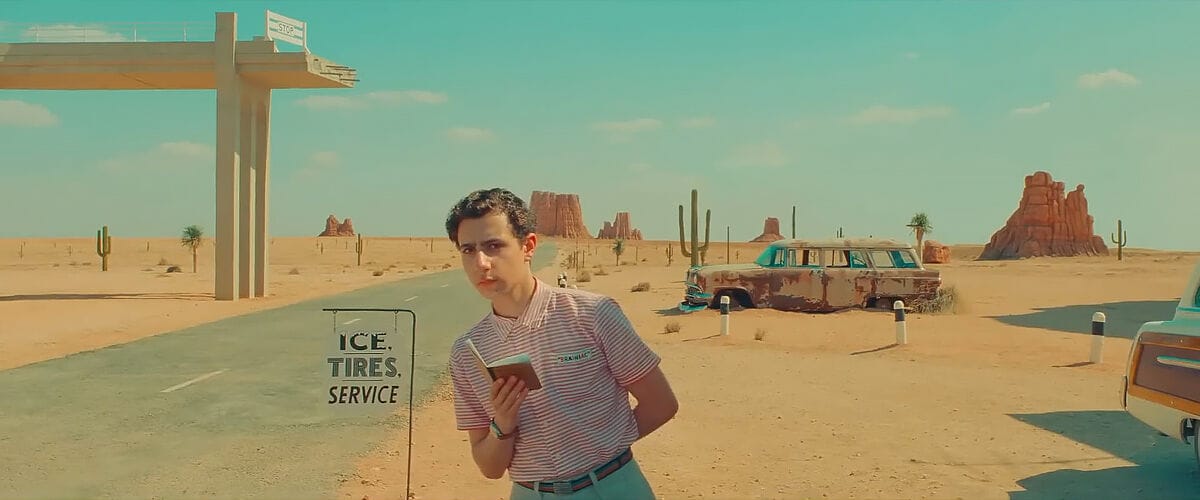
I jumped from NOW to TIFF in April 2022, meaning this was my first full year as a recovering film critic. The only place you’ve been reading me on movies is right here in this newsletter – and for that, I am eternally grateful. But I’m still a member of the TFCA, which meant I had the opportunity to catch up to the few films I missed over the year so I could participate in our annual awards – and now that those are in the can, here are my own personal picks for the year’s best cinema. I’ve reviewed some of them here; I’ll review more of them as they roll out on disc in the new year. However you see them, please see them. They’re more than worth your while.
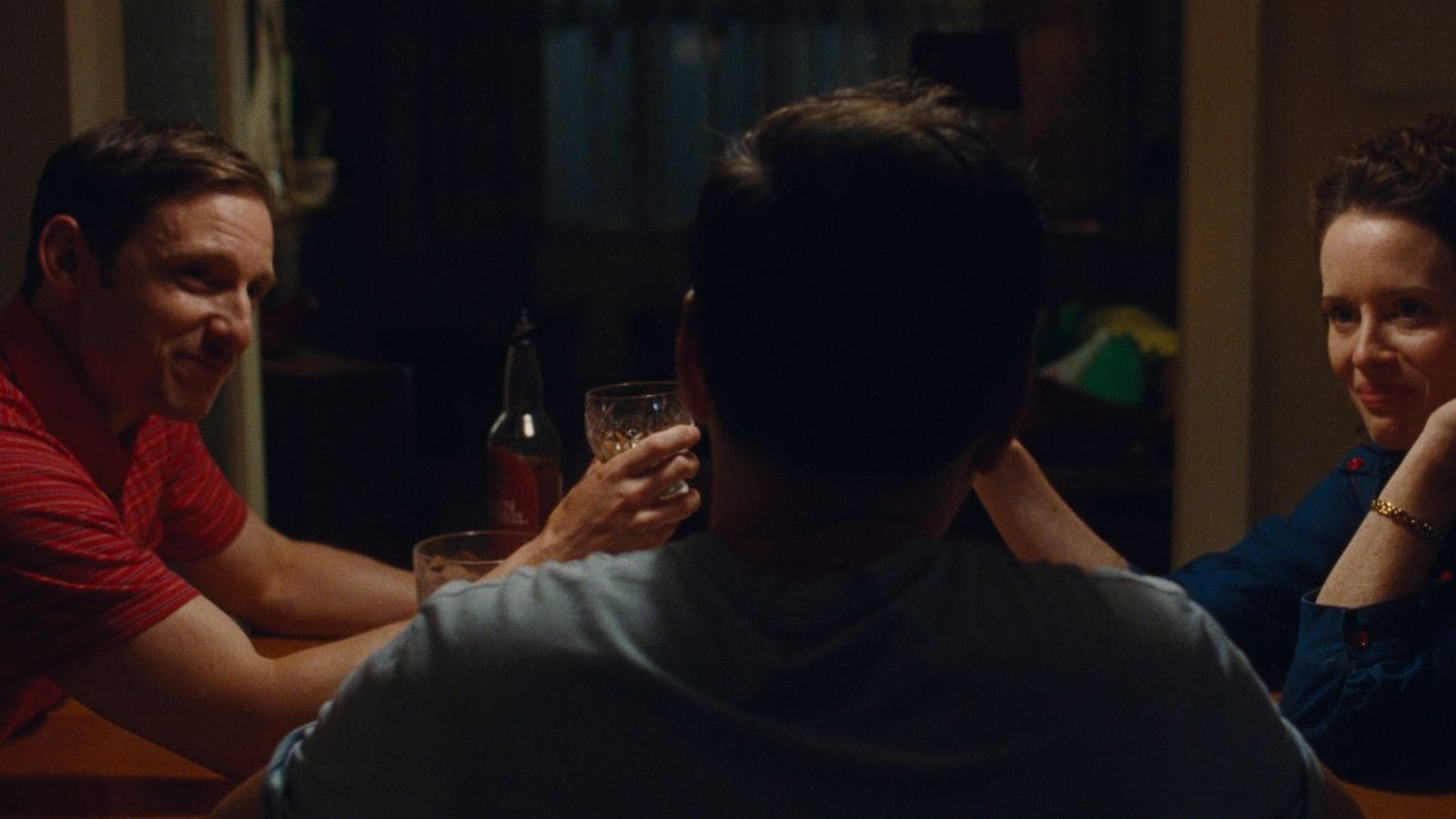
All Of Us Strangers (Andrew Haigh)
I haven’t read the Taichi Yamada novel on which Haigh’s gentle, devastating romance is based, nor seen its first screen adaptation, by Nobuhiko Obayashi; I understand this new one is very different, and it’d have to be because Haigh is such a singular artist. As with Weekend and 45 Years (and, to a lesser degree, Lean on Pete), he casts a gentle but unbreakable spell over the audience, this time building a pocket universe where despair can be reconfigured into something better, if only for a little while. Andrew Scott and Paul Mescal are wonderful together, and Jamie Bell and Claire Foy are the best I’ve ever seen them – which is really saying something, considering their respective bodies of work. Haigh finds something new for them all to do, working from the inside out in a story that asks its audience to think about the things we’d say to our parents if we encountered them as contemporaries, and what we’d need them to say to us. Just a beautiful picture.

Anatomy of a Fall (Justine Triet)
This year’s Palme d’Or winner gets rolling as a young boy finds his father dead in a snowbank outside their home, apparently having fallen from a window. The boy’s mother is charged with his murder, and her trial constitutes the bulk of Triet’s labyrinthine drama, which is as interested in untangling the egos, desires, conflicts and resentments contained within their marriage (and, really, everyone’s marriage) as it is in following the legal proceedings. Sandra Hüller – who this year gave two radically different takes on German stoicism – is mesmerizing as the woman in the dock, whose honesty about her issues with her husband allows a fast-talking prosecutor to paint her as a gloating Verhoevenesque villain … but the real discovery here is Milo Machado Graner as Sandra’s son Daniel, whose need to understand what did or didn’t happen between his parents becomes far more important than any verdict.
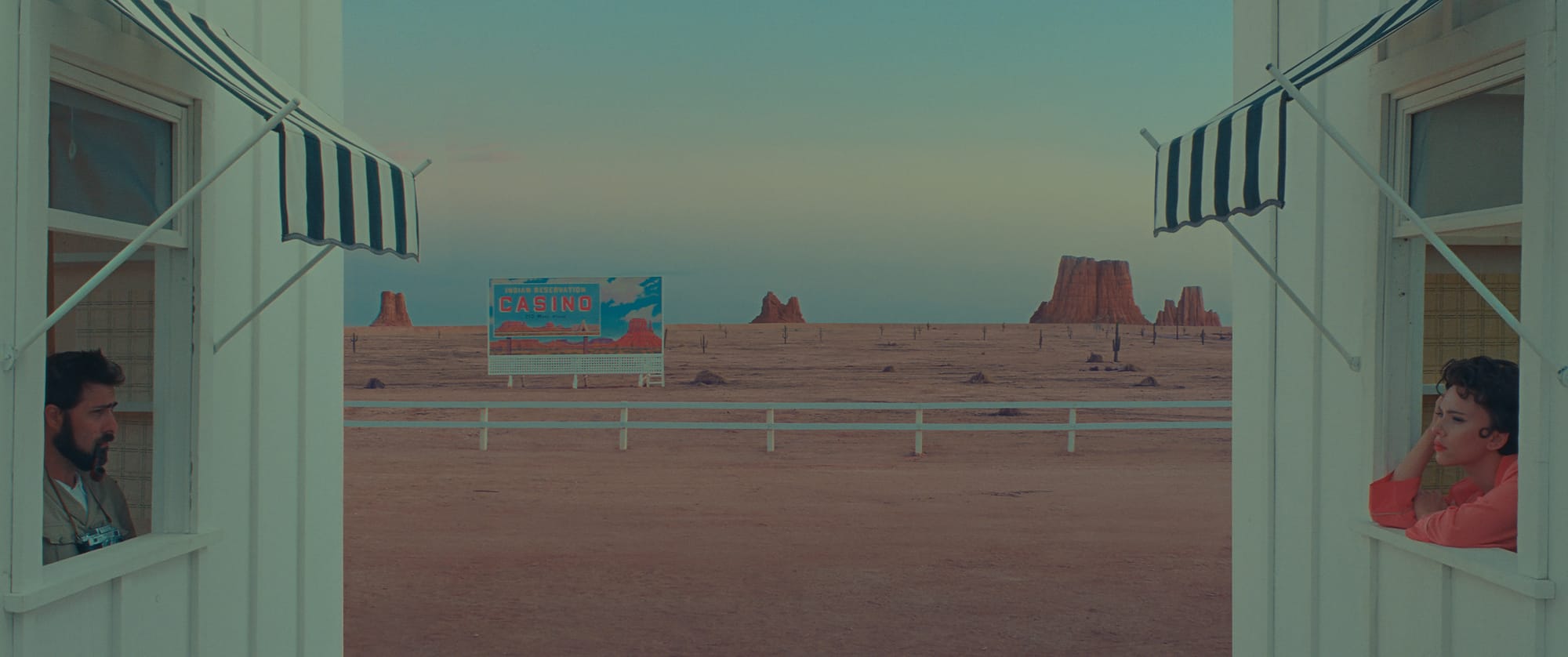
Asteroid City (Wes Anderson)
Anderson’s best films are about characters finding their way back to themselves, and as someone who worried The French Dispatch might have been a sign that America’s most obsessive filmmaker was running in place, or running out of gas entirely, I was really happy he found his own way back to his strengths as both stylist and storyteller with Asteroid City, his best film since The Grand Budapest Hotel. Similarly structured as a cinematic nesting doll, this one follows a handful of families who arrive in the eponymous (and fictional) New Mexico town for a science jamboree and experience all manner of revelations and discoveries. But it’s also the story of the story behind the story, as everything we’re seeing is an imagined version of a 1950s television broadcast – presented by Bryan Cranston doing his best Rod Serling – and the people who made it are just as lost as the characters they’re creating. Like Rushmore and Moonrise Kingdom, all the mayhem is the result of people trying to outrun the heartache they know is coming for them; like those earlier masterworks, Anderson ends Asteroid City on a note of grace and hope that takes days to really sink in. How about that.
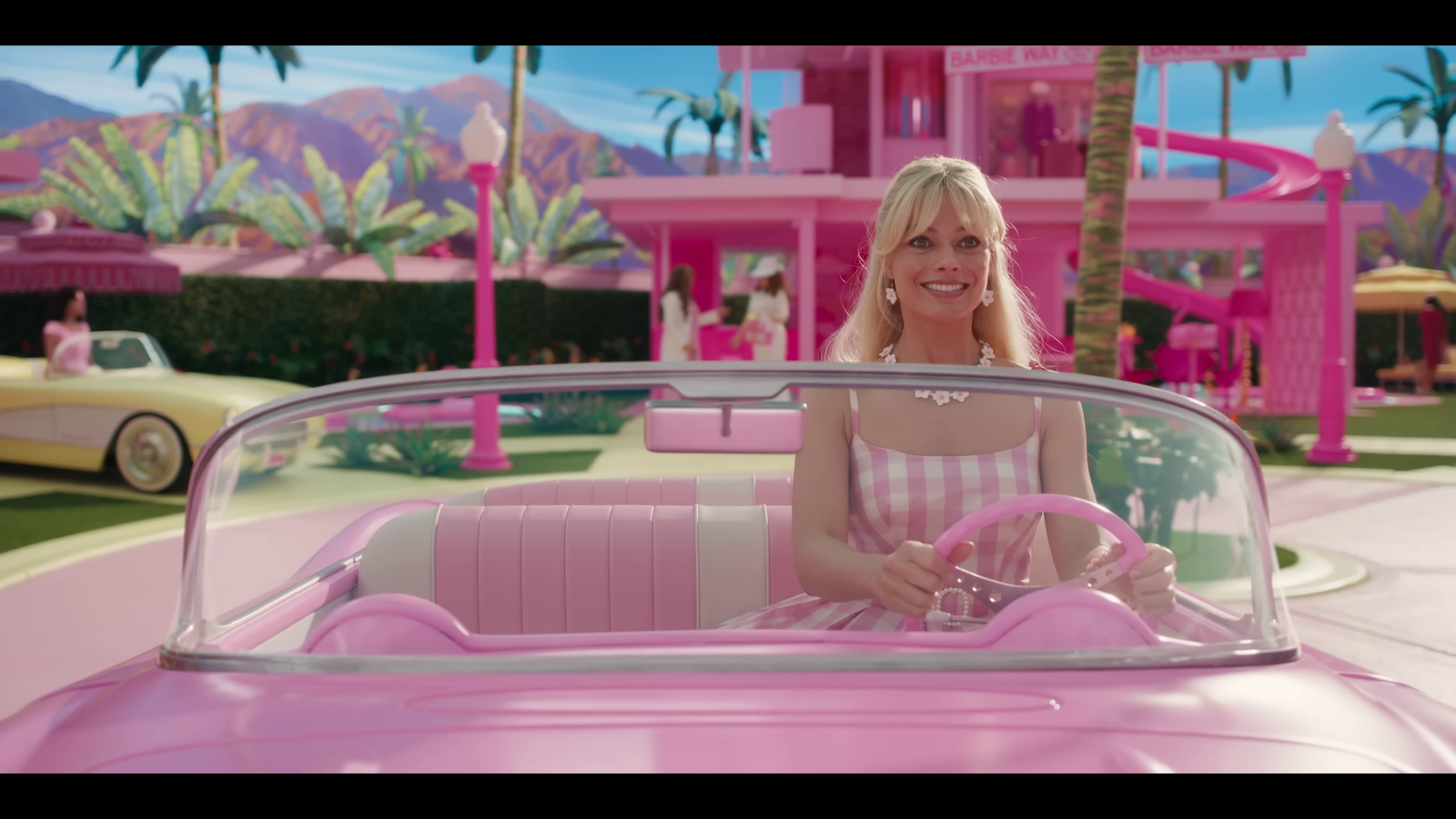
Barbie (Greta Gerwig)
When David Cronenberg brought Crash to Cannes, the jury gave it a special prize for “originality, daring and audacity”; Gerwig’s unerringly pitched blockbuster, which I reviewed at length earlier this fall, rates similar laurels. In a matter of minutes, Gerwig and co-writer Noah Baumbach let us see they know exactly what they’re doing, can’t believe they’re getting away with it and insist we take as much pleasure in literally unpacking Barbie as a concept as they do. And as remarkable as Margot Robbie is as Stereotypical Barbie, Ryan Gosling finds a whole new gear as Douchebag Ken. I half-believe Gerwig cast him just to see what his Oscar speech will sound like.
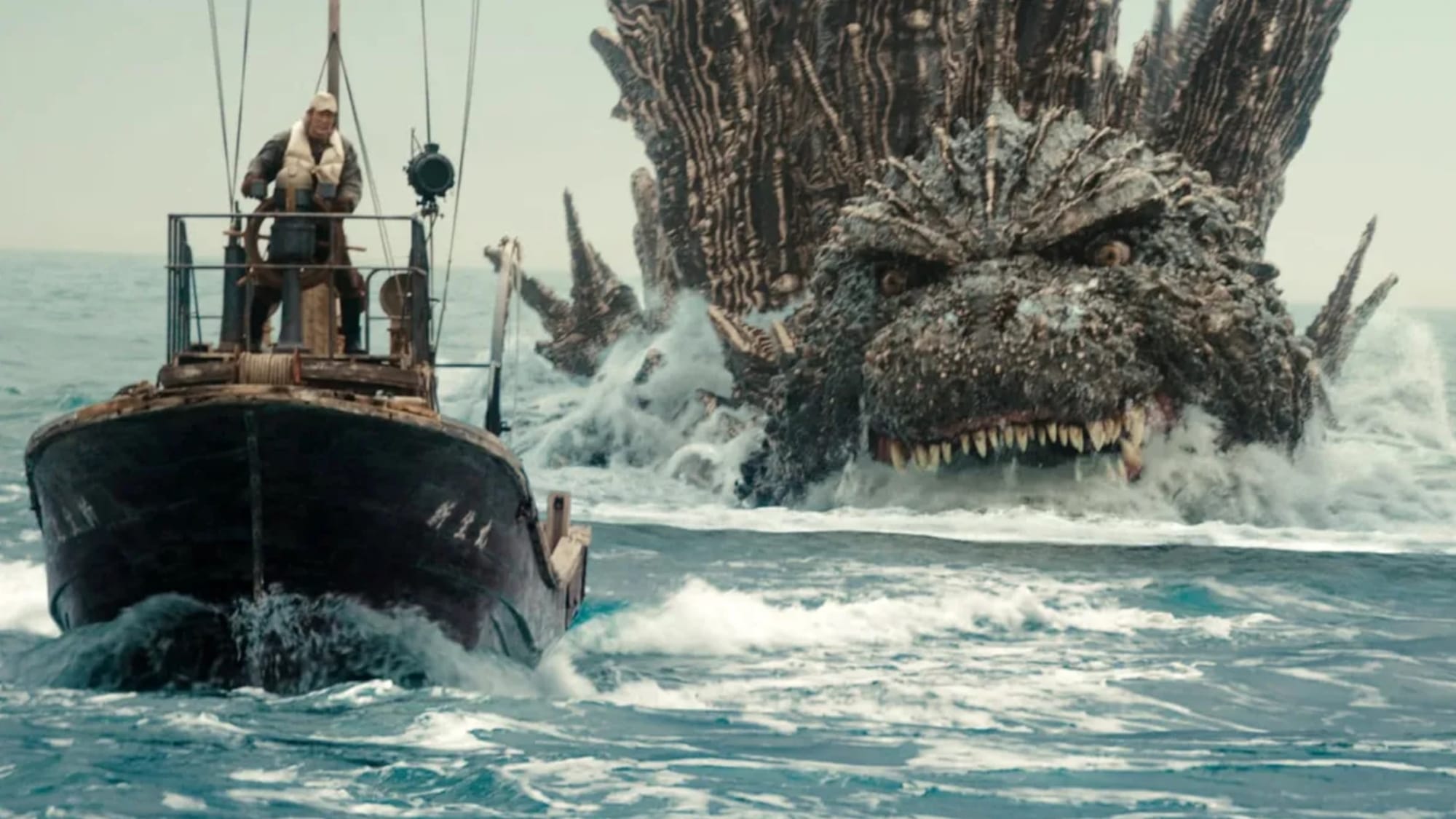
Godzilla Minus One (Takashi Yamazaki)
Toho marks seventy years of Godzilla movies with one that’s not only about something more than a pissed-off monster stomping a city, but about the culture that birthed that monster in the first place: Post-war Japan, with its people sheltering in the ruins of their former homes, surrounded by death and devastation, and wondering whether this is all they deserve. Yamazaki’s protagonist (former child actor Ryunosuke Kamiki) is a former kamikaze pilot who’s twice disgraced, at least in his own mind, by failing to do his duty for the Emperor and his comrades; when Godzilla emerges, he wonders whether he survived so he could save his nation from this new threat or if he’s damned to try and fail, over and over again. He’s not the only one who has to rouse himself from a personal hell in order to stand and fight, and Yamazaki gives us the story of a brutalized people finding new purpose in this impossible battle. See it in IMAX if you can. It’s astonishing.
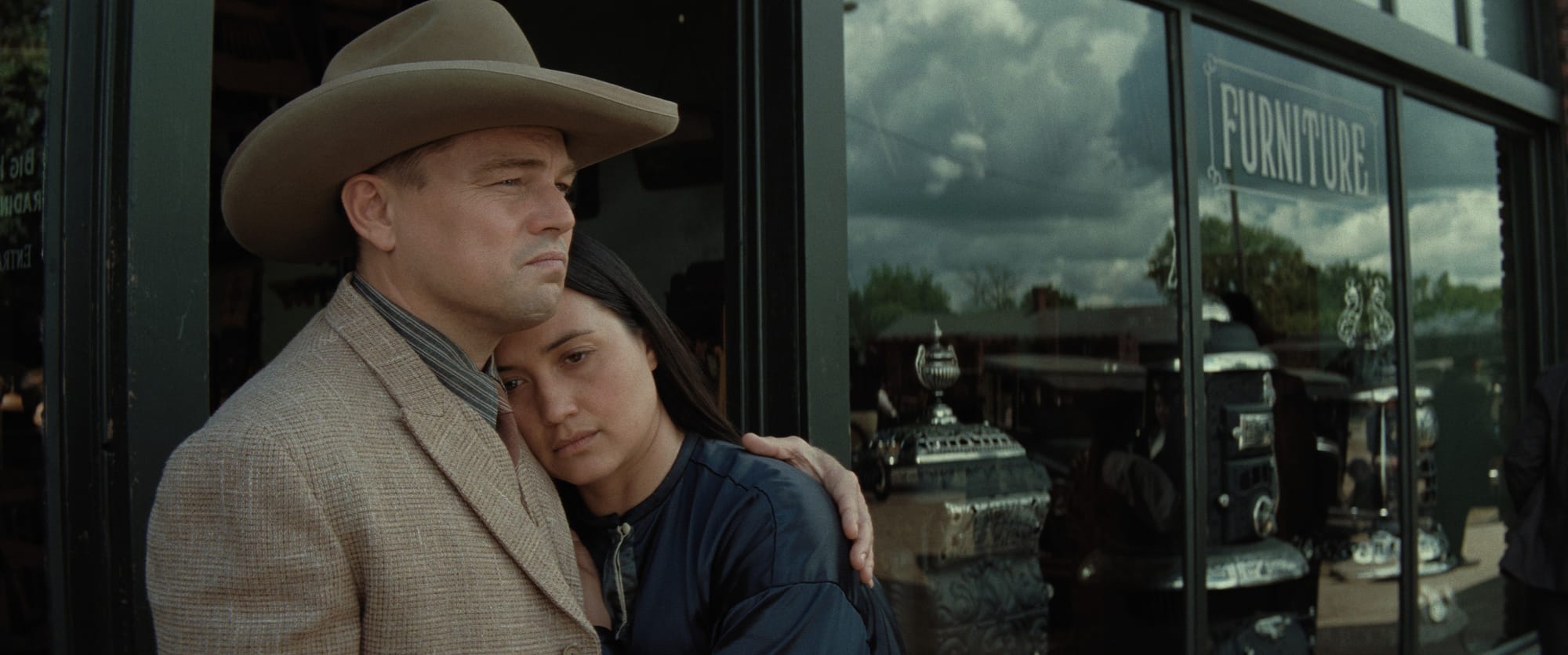
Killers of the Flower Moon (Martin Scorsese)
Also astonishing: Scorsese’s epic examination of the Osage murders, in which scores of Indigenous people were murdered by white Americans for their land rights, their money or just their presence. We see it through the entirely blinkered gaze of Ernest Burkhart (Leonardo DiCaprio, twice the age of the man he’s playing and perfect for the part), a war veteran and chump who does whatever his loathsome uncle William “King” Hale (Robert De Niro, also perfect) tells him to do, including court and marry Osage woman Mollie Kyle (Lily Gladstone, also also perfect) for her money and her land. Ernest sees himself as the hero of the story, but he’s absolutely not, and neither are we for being there; this is a movie about appropriation and carnage fueled by greed and apathy, and in its last mournful scene Scorsese himself steps up to acknowledge he might not be the best person to have made it, but he’s the only one who could have made it at all.

Past Lives (Celine Song)
Like All Of Us Strangers above and Riceboy Sleeps below, Song’s masterful debut asks crucial questions about where we come from, who we are and whether we’d be the same person if we’d taken a different route. Greta Lee is exquisitely good, with Teo Yoo and John Magaro gingerly following her lead in every perfectly crafted conversation, and the final scene finds a catharsis that puts almost every other movie this year to shame.

Perfect Days (Wim Wenders)
In the return to form I’ve been hoping Wenders would make for a very long time now, Kôji Yashuko plays a man named Hirayama who spends his days driving around Tokyo attending to the city’s impressive public bathrooms. It’s a job, not a fetish, but in his simple, repetitive acts of service both Hirayama and Wenders find something like transcendence – and the world Wenders builds around his star is as tactile and richly realized as the one Jim Jarmusch gave Adam Driver in Paterson. Which makes perfect sense, because both movies are ultimately about listening for the poetry that was waiting for you to hear it.

Riceboy Sleeps (Anthony Shim)
It occurs to me now that Shim’s second feature – an autobiographically tinged drama about a Korean woman named So-yeong (Choi Seung-yoon) who emigrates to Canada with her young son Dong-hyun after the death of her husband, and struggles to thrive in a very foreign land – tells the parts of the immigrant story Past Lives elides … though of course it functions perfectly well on its own. Shim’s empathetic camera trails So-yeong and Dong-hyun as they inch towards assimilation and away from one another; tragedy looms, but so does hope – partly in the form of Shim himself, who plays a small but pivotal role as a man who’d like to help both So-yeong and Dong-hyun, if they’ll let him. A breakout at TIFF 2022, it only arrived in theaters this spring. So here it is.

Showing Up (Kelly Reichardt)
Reichardt’s latest – and, charmingly, her first film to be released in 4K – is an entirely engaging look at what it takes to make art in a world that won’t stop intruding on your creative space. Michelle Williams offers a master class in seriocomic frustration as a sculptor who just needs one quiet day to get her next gallery show together but keeps getting interrupted by her family, her colleagues, her landlord and even the animal kingdom. If Reichardt is making a meta-commentary on her own career, it’s as artful and humane as everything else she’s done … and if she isn’t, that’s fine too. In any case, I am certain she has tried to finish a script while waiting for someone to fix her water heater. Maybe it was this one.
Any time I make a ten-best list I try to include as many honorable mentions, because I see a lot of great stuff every year and it feels awful to exclude any of it. So let’s also take a moment and think about Blackberry, Dream Scenario, Humanist Vampire Seeking Consensual Suicidal Person, May December, Mr. Dressup: The Magic of Make-Believe, Polite Society, Poor Things, Someone Lives Here, Teenage Mutant Ninja Turtles: Mutant Mayhem, The Zone of Interest and about twenty other movies – quite a few of them Canadian – that screened at TIFF but won’t open until the new year. I’ll do my best to give you a heads-up.
In this weekend's paid edition: The best discs of 2023. That's something you won't want to miss, right? You know what to do.
